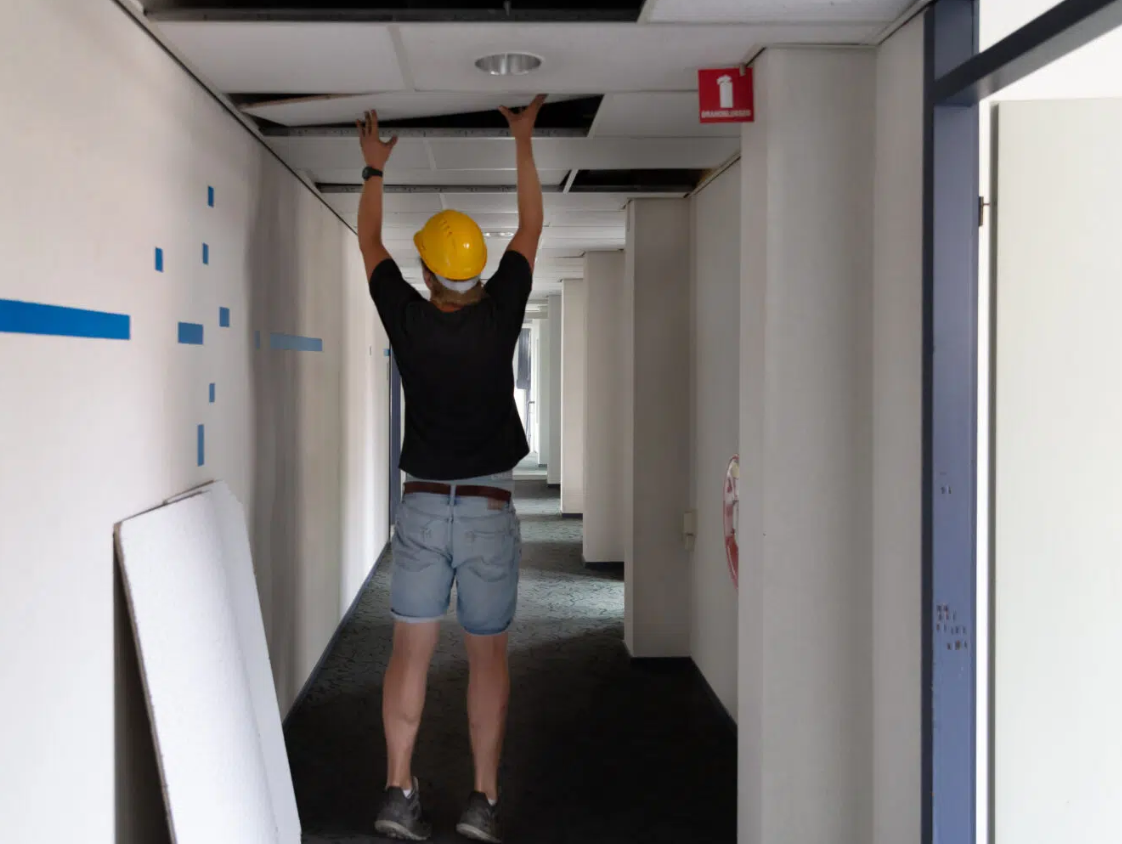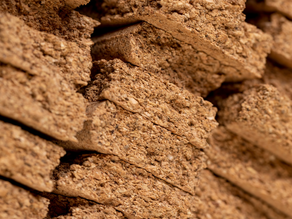Featured CAT 1 environmental declaration – CIRCQ
To encourage the development of Category 1 environmental declarations in the National Environmental Database, each month we highlight a product in this category. This time we look at CIRCQ ceiling panels.
Image: Circq

CIRCQ is one of the participants in the Filling the Gaps project. CIRCQ harvests, processes and sells used ceiling panels. Soon, David van Duffelen, owner of CIRCQ, will add an environmental declaration of the circular panel to the NMD. The corresponding LCA is in the works. According to David van Duffelen, his panels meet 100% of the required technical quality, while scoring significantly better than new panels in terms of environmental quality. But that does not yet mean that CIRCQ is taking the market in finishing materials by storm. Marketing circular building products requires a rethink of the market, of a chain approach in which circularity is central.
As a financial manager and consultant, David van Duffelen worked for companies in the Netherlands and abroad. His work focused on improving the company's financial results.

It was interesting work, but at some point I felt the need to change course. I used the Corona time to orient myself to a different kind of career. I quickly knew it had to be something in the field of sustainability.
David, who now lives in the Randstad but grew up in Twente, struck up conversations with old acquaintances who gave him the idea of giving demolished ceiling tiles a new life. “In Twente, I knew a building materials dealer and someone who owns a demolition company. The demolisher said it was too crazy for words that so much material is thrown away, while the building materials dealer reported that the reuse of materials is very possible but did not really take off. Ceiling panels are a good example. When offices and other utility buildings are remodeled, large quantities of ceiling tiles are disposed of as construction waste, only to have new panels brought in for the same building. It made sense to me to step into this market and give meaning to sustainable business.”
Looking like new
CIRCQ provides ceiling panels in a variety of standard sizes. The panels are made of rock wool, glass wool or wood. After harvesting, the panels are refurbished. For mineral wool panels, it means that they are mechanically coated with a new acoustic fleece. The fleece is applied with an ecological adhesive. If necessary, the panels are repainted. An ecological paint is used in this process. “When the panels are provided with a new fleece, they look like new. But compared to new panels, the CO2 emissions of circular panels are at least 75% lower.”
The ceiling panels represent David van Duffelen's first entry into the world of circular finishing products. He plans to develop a complete range of circular finishing products. “The range should make it possible to divide a shell space into units entirely using circular wall and ceiling products. Doors and glass walls will also be included in CIRCQ's range.”

Standard size
CIRCQ started in 2022 in cooperation with his Twente connections. Meanwhile, David is working with several demolition companies and with several building materials dealers. Sales are starting to take off. This is partly due to favorable pricing of the circular panels compared to new panels.
The advantage of the ceiling panels is that they are a standard size. Usually the panels can be easily removed from the ceiling structure. “Initially, I discussed with the demolishers how they could harvest the old ceiling tiles from the buildings. We then developed special boxes in which the demolishers could store the tiles. In practice, it turned out that using the boxes was not really convenient. Too many operations were involved. Now they are placed on a pallet. We are constantly looking at how the harvesting method can be improved.”

Becoming circular
Harvesting, or rather being allowed to harvest the slabs, is the most intensive aspect of the circular product. Through the website of Veras, the trade association for demolition contractors and asbestos removal companies, David keeps tabs on which projects might be suitable for harvesting the finishing products. “There are about 150 demolition companies in the Netherlands that are focusing on circularity. I am now working with 25 of these companies. But there are still many demolition companies that have not yet made the move to circularity. That's important, though. Not only does it help us expand the range of finishing products, but it is especially important to make the Netherlands truly circular. The market itself must also become circular.”
This page was translated using DeepL.



